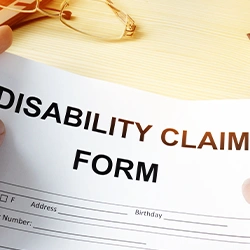Epilepsy is a neurological condition affecting the brain. It can cause seizures, which are episodes of abnormal electrical activity in the brain. This condition can make it challenging to work and interfere with other aspects of daily life.
As legal experts who have worked with the Social Security Administration (SSA) to get thousands of clients the benefits they deserve, we know that epilepsy can be a qualifying disability.
Summary of the Key Findings
- Epilepsy is a condition resulting in seizures that can affect the ability to work.
- People with this condition may be eligible for Social Security disability benefits.
- Social Security Disability Insurance and Supplemental Security Income benefits can help those with epilepsy.
Can You Qualify for Disability Benefits Based On Epilepsy?

The typical seizure for this category is convulsive seizures resulting in post-seizure symptoms. You meet the disability criteria for this brain disorder if they occur at least monthly over three consecutive months despite treatment with anti-seizure medication.
That timing can increase to once every two months over a four-month period if you are markedly limited in the following [1].
- Physical functions such as independently standing, walking, or using your arms; or
- Understanding, remembering, or applying information, such as learning, correcting a mistake, or following directions; or
- Interacting with others, like asking for help, cooperating with others, handling conflict; or
- Concentrating, persisting, or maintaining pace, such as completing tasks, avoiding distractions, working a full day; or
- Adapting or managing oneself, such as adapting to change or setting goals.
"We evaluate epilepsy, amyotrophic lateral sclerosis, coma or persistent vegetative state (PVS), and neurological disorders that cause disorganization of motor function..." - Social Security Administration.
The other type of epileptic seizures is "complex partial" seizures or dyscognitive seizures. These include absence seizures, temporal lobe seizures, non-convulsive epilepsy, and other less frequent seizures.
For these, you meet disability criteria if they occur at least weekly for three months, even though they are being treated. You can also qualify for disability if there is a seizure episode at least every two weeks for three consecutive months, and you have marked limitation of one of the following:
- Physical functioning
- Understanding, remembering, or applying information
- Interacting with others
- Concentrating, persisting, or maintaining pace
- Adapting or managing oneself
The SSA will need a detailed description from someone who has witnessed your seizures and a copy of your medical records.
What Is Epilepsy?

This condition causes the brain to be more prone to these seizures because it is overactive and promotes abnormal electrical signals. Epilepsy can develop from a variety of sources, including:
- Head injuries
- Stroke or cerebral palsy
- Brain tumor
- Infections
- For unknown reasons (idiopathic epilepsy)
Medical-Vocational Guidelines
Even if you don't meet the criteria outlined above, you may still be considered disabled if your uncontrolled epilepsy prevents you from doing any regular job, based on the Social Security Administration’s Medical-Vocational Allowance. The SSA makes this determination using a residual functional capacity evaluation (RFC).
An RFC will encompass reports submitted by you, your treating doctor, and possibly even friends and family. The free disability evaluation will analyze your limitations and show how they affect your ability to work and perform activities of daily living. When deciding, the SSA will also look at your education, age, medical condition, any physician-given restriction, and transferable work skills.
However, to get a disability, you will need to show that you cannot work full time in any sort of occupation, not just your current one.
Applying For Disability Benefits

In addition to your personal information, you will also need to provide details about your medical condition and work history. You should provide as much information as you can as an individual and through your medical records.
Once you have completed the application, a specialist will review your claim to determine if you are eligible for disability benefits. Upon approval, the SSA will send you a notice detailing the amount of your benefits and their start date. If the SSA denies your benefits claim, you can appeal the decision.
An attorney can help you with the application and appeals process and increase your chances of getting benefits.
Related Article: Which Pays More Between SSI & SSDI?See all related personal injury and accident lawsuits our lawyers have taken on.
Frequently Asked Questions
Is it hard to get disability benefits for epilepsy?
Social Security will evaluate the severity of your epileptic seizures, how often they occur, and how they affect your ability to work when determining your benefits. You will need to show medical evidence of your seizure disorder, describe your prescribed treatment, and show whether you have severe complications.
How much disability do you get for intractable epilepsy?
The amount of disability benefits you receive will depend on your work history and the severity of your condition. These benefits are not meant to replace a full salary, but they can help you cover the costs of living expenses and medical care. The average monthly payment is about $1,300 [3]
Is epilepsy a physical or mental disability?
This condition is classified as a neurological disorder because it directly affects the brain. This can result in frequent seizures, which are considered a physical problem, not a mental health issue. However, epilepsy interferes with your ability to work and perform activities of daily living, which is why you may be eligible for Social Security disability benefits.
Epilepsy As A Disability
If you have seizures related to epilepsy, you may be eligible for Social Security disability benefits. To qualify, you must have documented proof of your condition and how it affects your ability to perform in a workplace setting.If you are denied benefits, you can appeal the decision. To contact an experienced disability lawyer who can help you with this process and increase your chances of getting the benefits you deserve, click here.
References:
1.) https://www.ssa.gov/disability/professionals/bluebook/11.00-Neurological-Adult.htm
2.) https://www.epilepsy.com/what-is-epilepsy
3.) https://www.ssa.gov/policy/docs/quickfacts/stat_snapshot/

 Published by
Published by